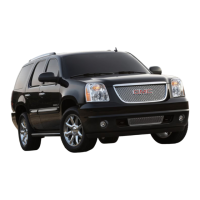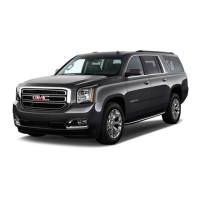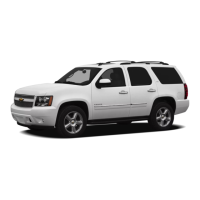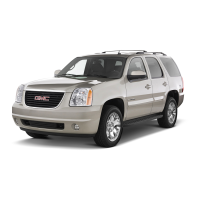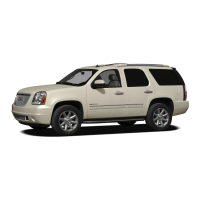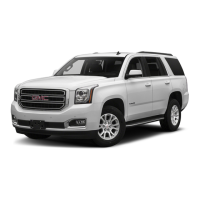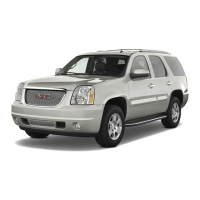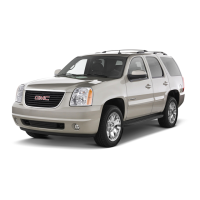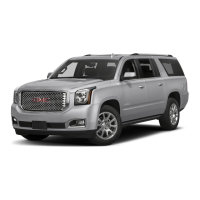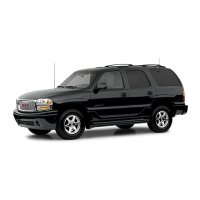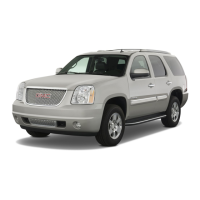Do you have a question about the GMC Yukon Denali 2015 and is the answer not in the manual?
Overview of the vehicle's primary controls and displays located on the dashboard.
Basic information for starting and operating the vehicle for the first time.
Information on vehicle access, locking mechanisms, and window operation.
Details on seat adjustment, head restraints, and safety belt usage.
Guidance on safe driving practices, vehicle control, and operation.
Routine maintenance and care procedures for the vehicle's components.
Information on vehicle keys, keyless entry, and door lock operation.
Operation of the vehicle's automatic door locking and unlocking features.
Operation of the vehicle's liftgate, including manual and power functions.
Overview of the vehicle's theft-deterrent features, including alarm and immobilizer.
Adjustment and features of the vehicle's power-operated exterior mirrors.
Operation of the vehicle's power windows, including express features.
Proper adjustment and importance of head restraints for occupant safety.
Details on power seat adjustment, lumbar support, and reclining seatbacks.
Information on reclining seatbacks and folding/tumbling second-row seats.
Procedures for folding and tumbling the third-row seatbacks.
Proper use, importance, and care of the vehicle's safety belt system.
Explanation of airbag locations, operation, and safety precautions.
Guidance on selecting and installing child restraint systems for safety.
Overview of various storage areas within the vehicle's cabin and cargo space.
Information on cargo covers, tie-downs, and convenience nets.
Guidelines and warnings for installing and using a roof rack system.
Explanation of various warning lights, gauges, and indicators on the instrument cluster.
Overview of the vehicle's instrument cluster layout and display.
Interpretation of the fuel gauge readings and associated lights.
Purpose and interpretation of the malfunction indicator (check engine) lamp.
Function of the brake system warning light and related procedures.
Navigating and using the Driver Information Center display.
Operation of the vehicle's exterior lighting controls and positions.
Function and operation of the Daytime Running Lamps system.
How the automatic headlamp system operates based on ambient light.
Operation of the hazard warning flasher system.
Operation of the vehicle's fog lamp system.
Navigating the interactive display area in the instrument cluster.
Operating the vehicle's audio system, including music selection and sources.
Operating the vehicle's navigation system for route guidance.
Customizing various vehicle settings through the infotainment system.
Overview of the vehicle's heating, cooling, and ventilation systems.
Operation of front climate controls, including automatic and manual modes.
Operation of rear climate controls, including fan, mode, and temperature.
Adjustment and operation of the vehicle's air vents.
Recognizing and avoiding common sources of driver distraction.
Principles of defensive driving, including expecting the unexpected.
Understanding braking action, reaction time, and helpful braking tips.
Features and operation of the Adaptive Cruise Control system.
Overview of systems designed to help avoid crashes and reduce damage.
Guidelines and safety rules for towing trailers.
Information on recommended fuel types and usage.
Checking engine oil level, type, and when to add or change oil.
Importance of proper tire maintenance, including inflation and wear.
Importance of correct tire inflation pressure for safety and performance.
How the TPMS monitors tire pressure and alerts the driver.
Ensuring optimal tire wear and performance through proper alignment.
Procedures for replacing various vehicle bulbs.
Importance of required maintenance for vehicle performance and value.
Schedule of recommended maintenance services for normal and severe driving conditions.
List of approved fluids, lubricants, and replacement parts for the vehicle.
Identifying the vehicle's unique VIN for various purposes.
Capacities and specifications for vehicle fluids and components.
Engine details including VIN code and spark plug gap.
Steps to resolve concerns with dealership sales or service departments.
Procedures for reporting safety defects to government agencies and General Motors.
Information on how vehicle data is recorded and protected.
Details on roadside assistance services and how to call for help.
Introduction to the OnStar system, its status light, and basic button functions.
Explanation of Emergency, Security, Navigation, and Connection services.
How to connect to an OnStar Emergency Advisor for assistance.
Using OnStar for turn-by-turn navigation and destination downloads.
Services like Stolen Vehicle Assistance and Remote Door Unlock.
| Brand | GMC |
|---|---|
| Model | Yukon Denali 2015 |
| Category | Automobile |
| Language | English |

